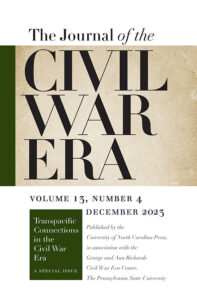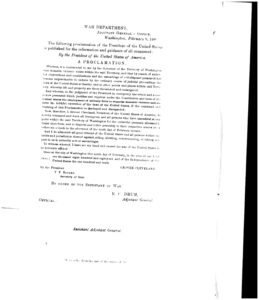How the Federal Government Came to Control Immigration Policy and Why it Matters
The Civil War and Reconstruction transformed immigration policy in the United States, marking the transition from a sub-national to a national policy for regulating the admission, exclusion, and removal of foreigners. Before that turning point, Congress played almost no role in regulating immigration, other than naturalization policy (for white people) ...
Read More
Read More
Author Interview: Tian Xu
Today we share an interview with Tian Xu, who published an article in the December 2023 JCWE, titled “Chinese Women and Habeas Corpus Hearings in California.” Tian Xu is a postdoctoral fellow at SUNY Buffalo’s Baldy Center for Law and Social Policy. His work has been published in Journal of ...
Read More
Read More
Author Interview: Beth Lew-Williams
Today we share an interview with Beth Lew-Williams, who published an article in the December 2023 JCWE, titled “Chinese Naturalization, Voting, and Other Impossible Acts.” Beth Lew-Williams is an associate professor of history at Princeton University. She is a historian of race and migration in the United States, specializing in Asian ...
Read More
Read More

Preview of December JCWE and the Transpacific Connections Forum
In the late nineteenth century, opponents of Asian immigration on the West Coast claimed slavery was being resurrected in the United States. The escalation of industrial capitalism in the postbellum years had already established the perception among American workers that capitalists were attempting to enslave them as exploitable labor. As ...
Read More
Read More

Connecting the Nation: The U.S. Army and the American West in the Study of the Civil War Era Image?
Read the introduction to the A Prelude to an Unholy Union roundtable here, the first installment here, and the third installment here. In the aftermath of a fatal confrontation between elements of Washington Territory’s militia and an enraged anti-Chinese mob, elements of the U.S. Army’s Fourteenth Infantry Regiment occupied Seattle between February ...
Read More
Read More
